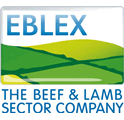 |
|||||||||
|
|||||||||||||||||||
|
|
Cash benefits of lamb sorting reinforced by second BRP trial
A second lamb sorting trial has reinforced the principle that sorting lambs prior to sale can bring financial benefits to farmers. The three week trial carried out last month by the EBLEX Better Returns Programme (BRP) at Cockermouth market in Cumbria revealed that producers who batched their lambs to meet identified end markets received an average premium of £2.10 for a 2-3L lamb. Last year BRP carried out a sorting project at Skipton auction market which showed similar financial benefits. During the recent Cockermouth project BRP staff sorted lambs into four categories which were sold through the ring as usual and compared to the average price for non-sorted sheep sold that same day at Cockermouth. Lambs were marked as blue (2-3L), yellow (3H- 4L), red heads (store lambs/ underfinished P-1) and red rumps (overfat 4H+). Results during the trial showed marked blue lambs achieved a price premium of 5 p/kg, or £2.10 per lamb and lambs marked up as yellow achieved a slightly lower average premium of 4p/kg - or £1.68 per head. When sorted and sold separately the small number of red marked lambs did not incur any price penalties. Cockermouth auctioneer Adam Day said feedback from producers who had their lambs sorted by BRP was extremely positive: "Most producers were willing to talk to BRP staff about the principles of lamb selection and sorting. "This three week trial really has focused our farmers' minds on the financial benefits of batching and matching before the auction ring. The beauty of the live ring is that we have buyers for all types of sheep. Our farmers were interested in discussing those buyers' requirements and how to make best advantage of sorting lambs to meet different buyers' specifications." David Eden, who led the BRP sorting team at Cockermouth added: "In one particular instance we were able to sort a batch of around 40 lambs for one farmer which included a small proportion of lambs lacking finish (red heads). "The producer was then able to sell these separately to a buyer who was looking for smaller leaner lambs for export - and received a good price for them, along with a good price for his blue and yellow lambs. If these lambs had remained in the pen unsorted, chances are the producer would not only have lost out on that price, the amount he received for the better lambs would have been dragged down by the mixed bunch."
|
||||||||||||||||||

|
|
||||||||||||||||||
| home | agri-services | pedigree
pen | news | dairy | beef | machinery BPS | property | organisations | site map |
|||||||||||||||||||

